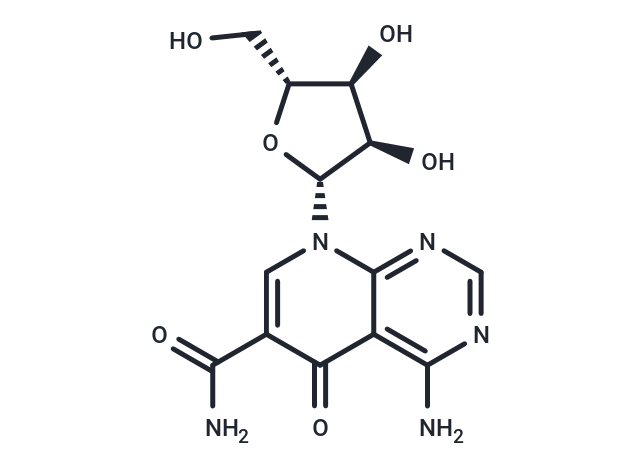Shopping Cart
- Remove All
 Your shopping cart is currently empty
Your shopping cart is currently empty

API-1 (NSC-177223) is a potent inhibitor of Akt. It induces GSK3-dependent, β-TrCP- and FBXW7-mediated Mcl-1 degradation, resulting in induction of apoptosis .

| Pack Size | Price | Availability | Quantity |
|---|---|---|---|
| 1 mg | $78 | In Stock | |
| 5 mg | $159 | In Stock | |
| 10 mg | $262 | In Stock | |
| 25 mg | $433 | In Stock | |
| 50 mg | $592 | In Stock | |
| 100 mg | $828 | In Stock | |
| 200 mg | $1,090 | In Stock | |
| 1 mL x 10 mM (in DMSO) | $178 | In Stock |
| Description | API-1 (NSC-177223) is a potent inhibitor of Akt. It induces GSK3-dependent, β-TrCP- and FBXW7-mediated Mcl-1 degradation, resulting in induction of apoptosis . |
| In vitro | API-1 rapidly and potently reduced the levels of Mcl-1 primarily in API-1-senstive lung cancer cell lines.?Ectopic expression of Mcl-1 protected cells from induction of apoptosis by API-1.?API-1 treatment decreased the half-life of Mcl-1, whereas inhibition of the proteasome with MG132 rescued Mcl-1 reduction induced by API-1.?API-1 decreased Mcl-1 levels accompanied with a rapid increase in Mcl-1 phosphorylation (S159/T163).?Moreover, inhibition of GSK3 inhibited Mcl-1 phosphorylation and reduction induced by API-1 and antagonized the effect of API-1 on induction of apoptosis. |
| Alias | NSC177223 |
| Molecular Weight | 337.29 |
| Formula | C13H15N5O6 |
| Cas No. | 36707-00-3 |
| Smiles | NC(=O)c1cn([C@@H]2O[C@H](CO)[C@@H](O)[C@H]2O)c2ncnc(N)c2c1=O |
| Relative Density. | 1.792g/cm3 |
| Storage | Powder: -20°C for 3 years | In solvent: -80°C for 1 year | Shipping with blue ice. | ||||||||||||||||||||||||||||||
| Solubility Information | DMSO: 22.5 mg/mL (66.71 mM) | ||||||||||||||||||||||||||||||
Solution Preparation Table | |||||||||||||||||||||||||||||||
DMSO
| |||||||||||||||||||||||||||||||

Copyright © 2015-2024 TargetMol Chemicals Inc. All Rights Reserved.